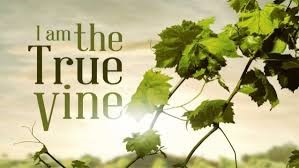Views from the Pews – Easter V – Sunday, April 28, 2024
Brothers and Sisters:
In 1 Thessalonians 5:18, we are reminded that every day should be a day of thanksgiving. God’s word encourages us to give thanks in everything However, there are special occasions when thanksgiving seems to be the natural and most appropriate response. Harvest Festival, which is celebrated at the Church of St. Martin of Tours today, is one such occasion. In this celebration, it is God who is being honoured for his goodness, and as the Psalmist suggests we must honour him with our substance. It is very important that we understand that genuine thanksgiving requires more than words. One writer suggests that “there can be no thanks without giving” which means that our words must be supported by our deeds. Gratitude must be accompanied by generosity to make the act of thanksgiving complete.
At the Churches of St. John the Evangelist and the Transfiguration, the Gospel Reading for the 5th Sunday of Easter is John 15:1-8. In this reading, Jesus reminds us that he is the true vine.
Why does Jesus speak of himself as the true vine? The image of the vine was a rich one for the Jews since the land of Israel was covered with numerous vineyards. It had religious connotations to it as well. Isaiah spoke of the house of Israel as “the vineyard of the Lord” (Isaiah 5:7). Jeremiah said that God had planted Israel “as his choice vine” (Jeremiah 2:21). While the vine became a symbol of Israel as a nation, it also was used in the scriptures as a sign of degeneration. Isaiah’s prophecy spoke of Israel as a vineyard which “yielded wild grapes” (see Isaiah 5:1-7). Jeremiah said that Israel had become a “degenerate and wild vine” (Jeremiah 2:21). When Jesus calls himself the true vine he makes clear that no one can claim their spiritual inheritance through association with a particular people or bloodline. Rather, it is only through Jesus Christ that one can become grafted into the true “vineyard of the Lord”. Jesus offers true life — the abundant life that comes from God and which results in great fruitfulness. How does the vine become fruitful? The vinedresser must carefully prune the vine before it can bear good fruit. Vines characteristically have two kinds of branches — those which bear fruit and those which don’t. The non-bearing branches must be carefully pruned back in order for the vine to conserve its strength for bearing good Fruit. Jesus used the image to describe the kind of life he produces in those who are united with him – the fruit of “righteousness, peace, and joy in the Holy Spirit” (Romans 14:17). Jesus says there can be no fruit in our lives apart from him. The fruit he speaks of here is the fruit of the Holy Spirit (see Galatians 5:22-23). There is a simple truth here: We are either fruit-bearing or non-fruit-bearing. There is no in-between. But the bearing of healthy fruit requires drastic pruning. The Lord promises that we will bear much fruit if we abide in him and allow him to purify us. Do you trust in the Lord’s abiding presence with you?
Contributed

